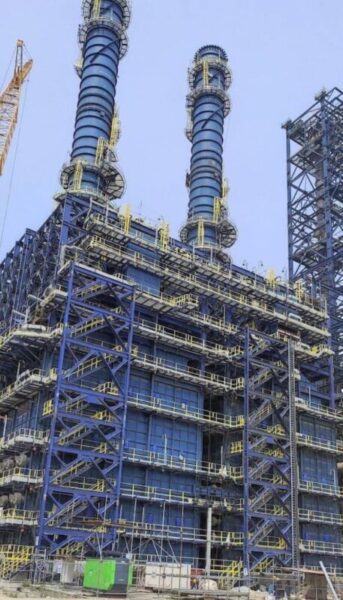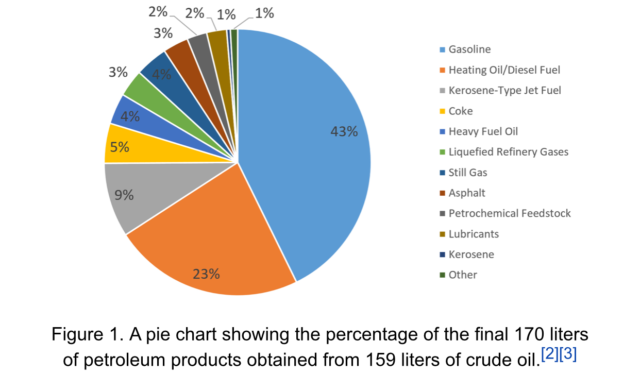National Issues
Monopoly, Who Owns The Dangote Refinery? -By Khaleb Ogbonna
The name of the refinery may put ownership in the hands of Aliko Dangote, yet the impact of the Dangote refinery makes every Nigerian a stakeholder. However, more than the rhetoric this throws up is the need for the government to make this ownership real enough, by creating a more enabling environment for cottage industries that will need raw materials from the refinery for their production.

Prior to its launch billed for Monday the 22nd of May 2023, the Dangote Refinery had a sizzling trailer released on Nigeria’s most popular social media platform Twitter, where what should have been a promotional short video was replaced by arguments of how much of a monopolist Alhaji Aliko Dangote, the Chairman of the Dangote Group and world’s richest black man is.
Stoking the fire more was the laudation delivered by the governor of Lagos state, Mr Babajide Olusola Sanwo-Olu who hailed the Alhaji Aliko Dangote when he said “Dangote who came to Lagos with nothing 45 years ago, has built the biggest empire in Africa.”
Despite staying at the top of the log of Africa’s richest for over a decade now, Alhaji Aliko Dangote has always been the subject of his critics in the Nigerian social media space over what is perceived by them to be special concessions granted him by the government which has enabled him to thrive better than his peers in the business sector.
The Dangote refinery which sits on 2,635 hectares of land, touted to be about six times the size of Lagos’ Victoria Island is Nigeria’s most recent child of necessity. The Refinery alone has a 435 MW Power Plant that can meet the total power requirement of Ibadan Disco (the electricity company covering Oyo, Ogun, Osun, Kwara and parts of Niger, Ekiti and Kogi). This child of necessity weighs in to solve an energy crisis that has led to Nigeria spending $23.3bn last year on petroleum product imports, with consumption in the region of 33 million litres (8.7 million gallons) of petrol daily as reported by the Central Bank of Nigeria.
The Pipeline Infrastructure at the Dangote Petroleum Refinery is the largest anywhere in the world, with 1,100 kilometres that will handle 3 Billion Standard Cubic feet of gas per day.
The refinery has a capacity of 650,000 barrels per day, the cost of Africa’s biggest oil refinery and the world’s biggest single-train facility with a 900 KTPA Polypropylene Plant that supplies raw materials for the production of plastics.
The project is said to cost a total of $18.5 billion with funding distributed into 50 per cent equity investment and 50 per cent debt finance, of which the NNPC has a 20 per cent stake and contains an extant agreement to provide the refinery with 300,000 barrels of crude oil per day. The refinery has a refining capacity of 650,000 barrels per day (bpd) and will still rely on crude oil imports considering the dwindling oil production capacity of the country, which as of April stood at about 1 million barrels per day.
In what may support the discussion on monopoly, Aliko Dangote while commending the governor of the Central Bank of Nigeria Mr Godwin Emefiele said “Without Governor Emefiele’s courageous support and backing, this project would not have stood a chance of successful completion.” Emefiele returned the gesture – which may have given away Alhaji Dangote – when he buttressed that ‘the CBN also partnered with the Dangote Group to ensure the successful completion of the project by providing about N125 billion for domestic currency requirements while also ensuring the availability of foreign exchange (FX) to pay for imported equipment.’ This on its own gives some sort of room for the argument that Dangote is favoured by the government in some ways, especially in the area of forex subsidy, which has been the scourge of manufacturing in Nigeria.
However, one is burdened by the unnecessary slack given to the man to ask a pertinent question. This question which calls for personal reflection is, how many of his critics have taken time to look through the amount of faith it takes to invest in the Nigerian economy in the face of the endless forex and power crisis? There are individuals in Nigeria with the economic leverage and potential as much that matches that of Dangote who have chosen to move such capital to foreign companies investing in foreign financial instruments, yet this propensity of theirs to put local capital on international flight never bothers the common commentator who chooses to talk down on Aliko’s grit at any of his giant strides.
Does Aliko Dangote enjoy some sort of government favouritism? Absolutely yes! Yet, that special status is grace reserved for people who have chosen to be here. Aliko is not in a class of his own, many operate theirs – albeit covertly. What Aliko enjoys can be likened to the crony capitalist economic model that many heavy chemical industries used to develop the likes of South Korea, Thailand and other Southeast Asian countries. The only problem with everything that has worked everywhere but failed in Nigeria is the mindset that what is for all is for one, and what should work for all should serve a few.
In measuring the output by the refinery, at 650,000 bpd; a report by Energy Education gives that a barrel of oil (equivalent to 159 litres) gives 170 litres of refined petroleum products. There is an increase in volume through the refining process as a result of an effect known as processing gain. In litres, gasoline makes up about 73 litres of the final 170, diesel and heating oil make up about 40 litres, while kerosene-type jet fuels make up about 15.5 litres.”

Hence, if out of every barrel produced, 73 litres of Premium Motor Spirit (PMS) is gotten, the Dangote Refinery at full production capacity assures the country and its West African neighbours of about 47.5 million litres of petrol daily, this will meet the nation’s demand of 33 million litres daily, previously satisfied by importation and depleting scarce foreign reserves.
While the argument on the ownership structure of the refinery is put to rest by the financing details revealed, the impact of this project continues, since the refinery on its own provides Nigeria with a lot. Knowing that it will take close to 1,500 trucks to move petroleum products out of the refinery daily, the indirect employment this promises to create is enough to settle the question of ownership.
The name of the refinery may put ownership in the hands of Aliko Dangote, yet the impact of the Dangote refinery makes every Nigerian a stakeholder. However, more than the rhetoric this throws up is the need for the government to make this ownership real enough, by creating a more enabling environment for cottage industries that will need raw materials from the refinery for their production.
Finally, the need to protect the environment is as vital as the need to solve Nigeria’s acute energy problems. Another Ogoniland or sooth crisis – as seen in Port Harcourt – takes away ownership from the average Nigerian and puts it 100 per cent (100%) back into the hands of pernicious capitalism by the capitalist, buttressing the theories of Karl Marx believed to be that the profit motive inherent in capitalism leads to exploitation and class struggle, which ultimately contributes to social inequality.
Khaleb Ogbonna is a media executive and writes from khalebpowers@gmail.com


















